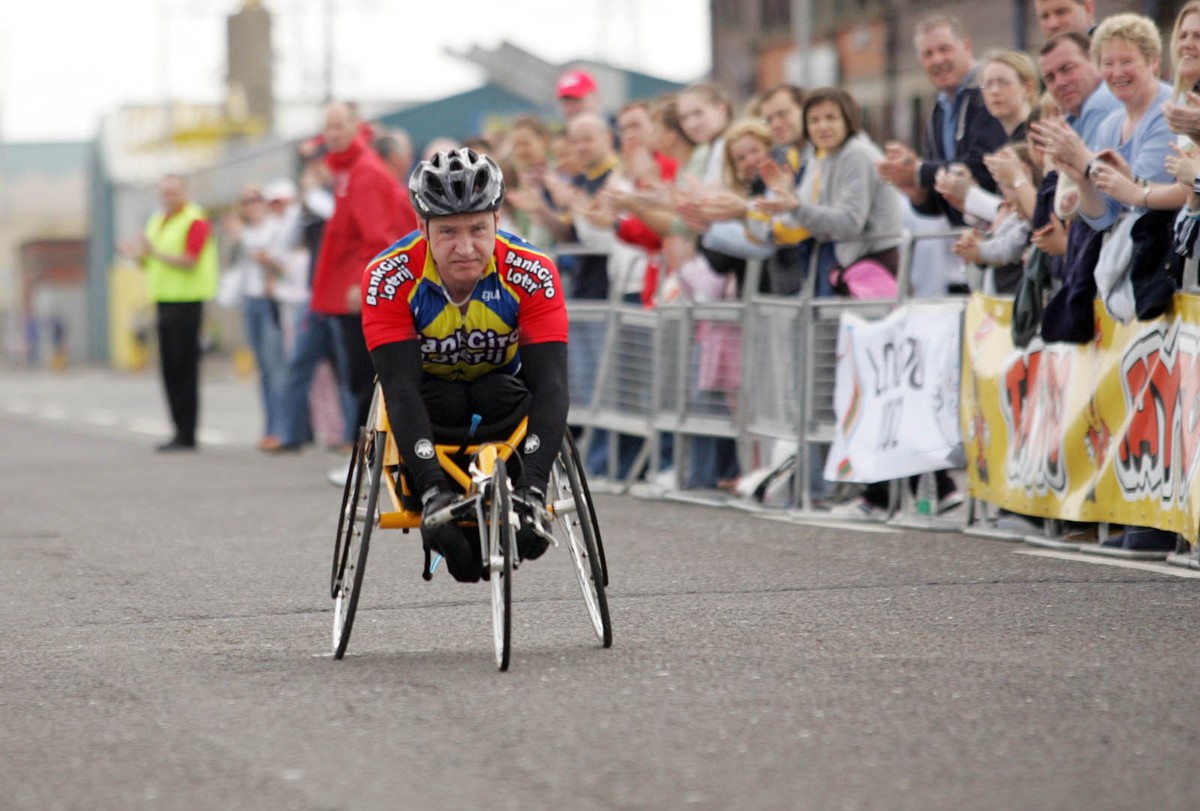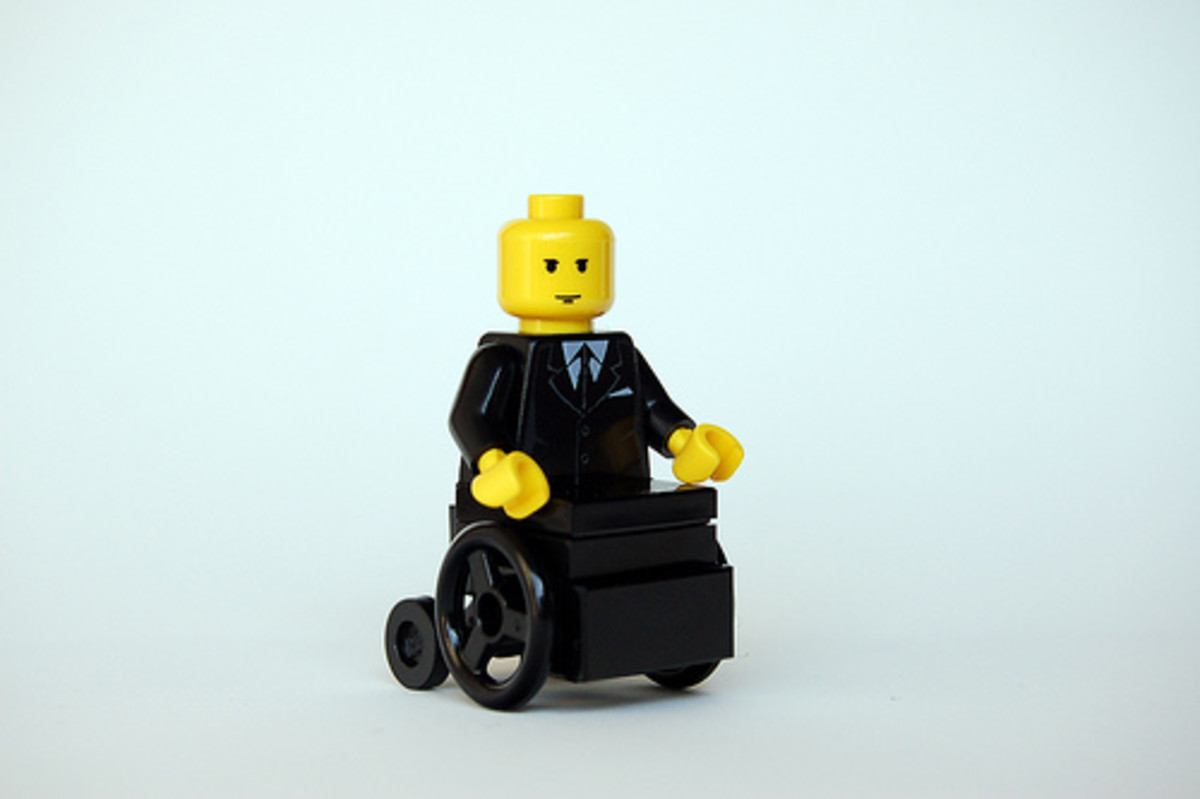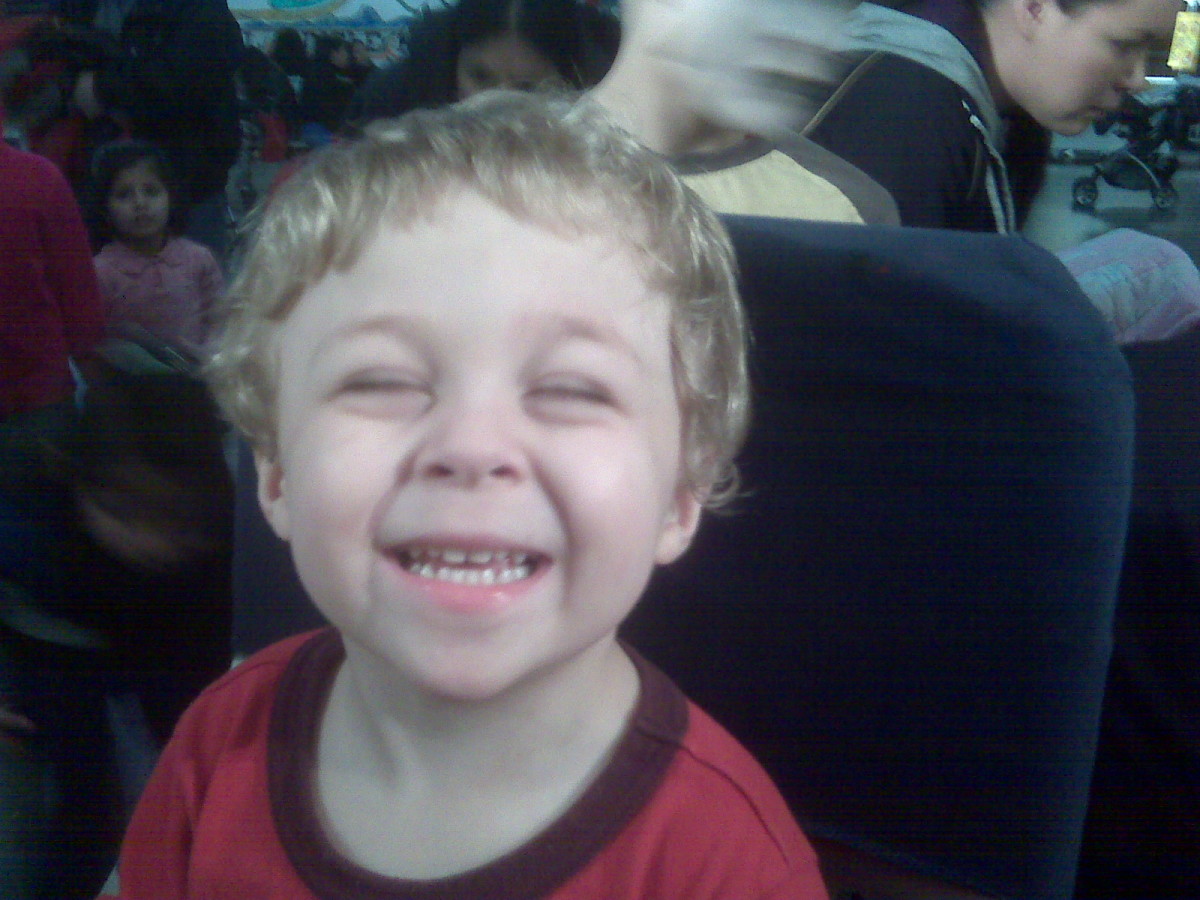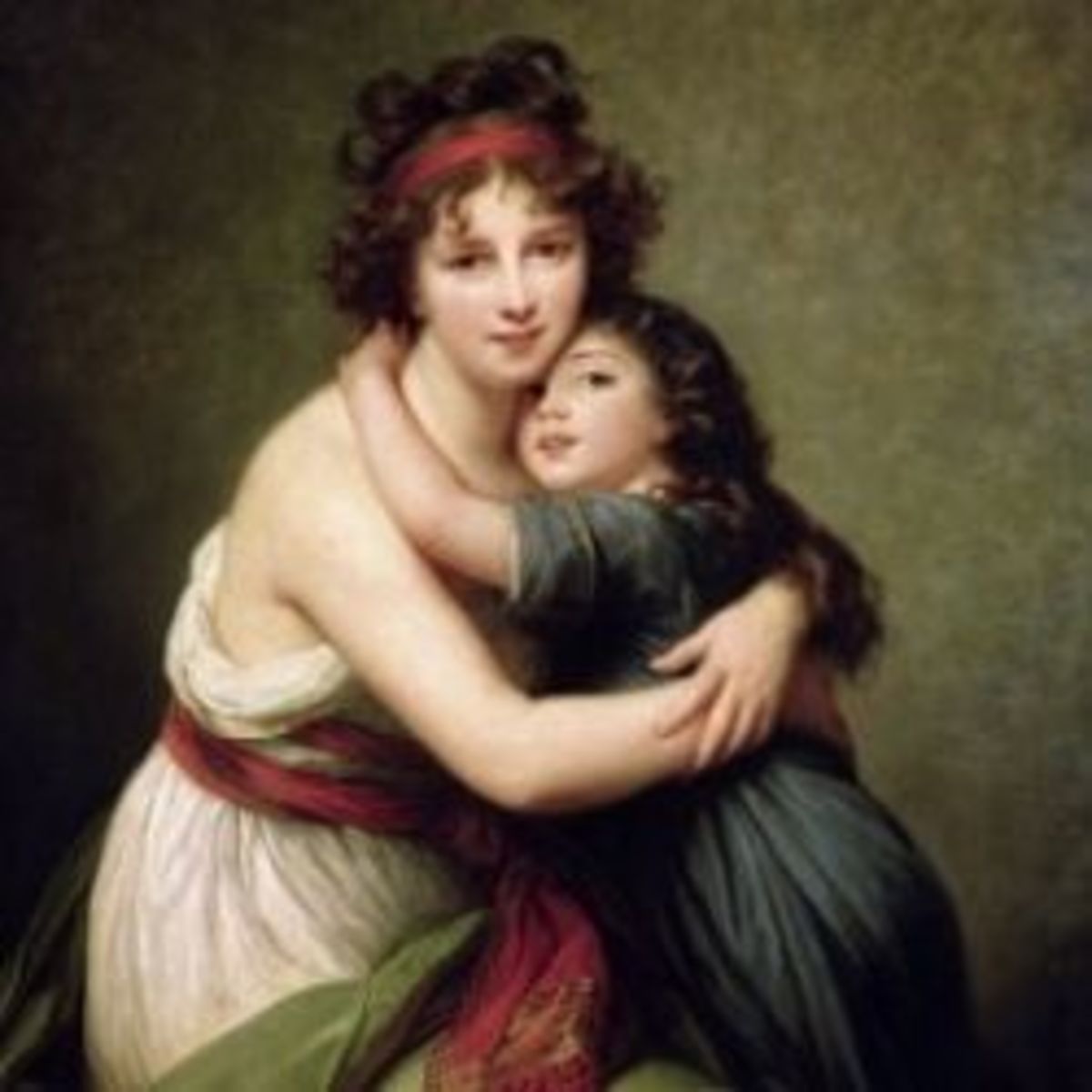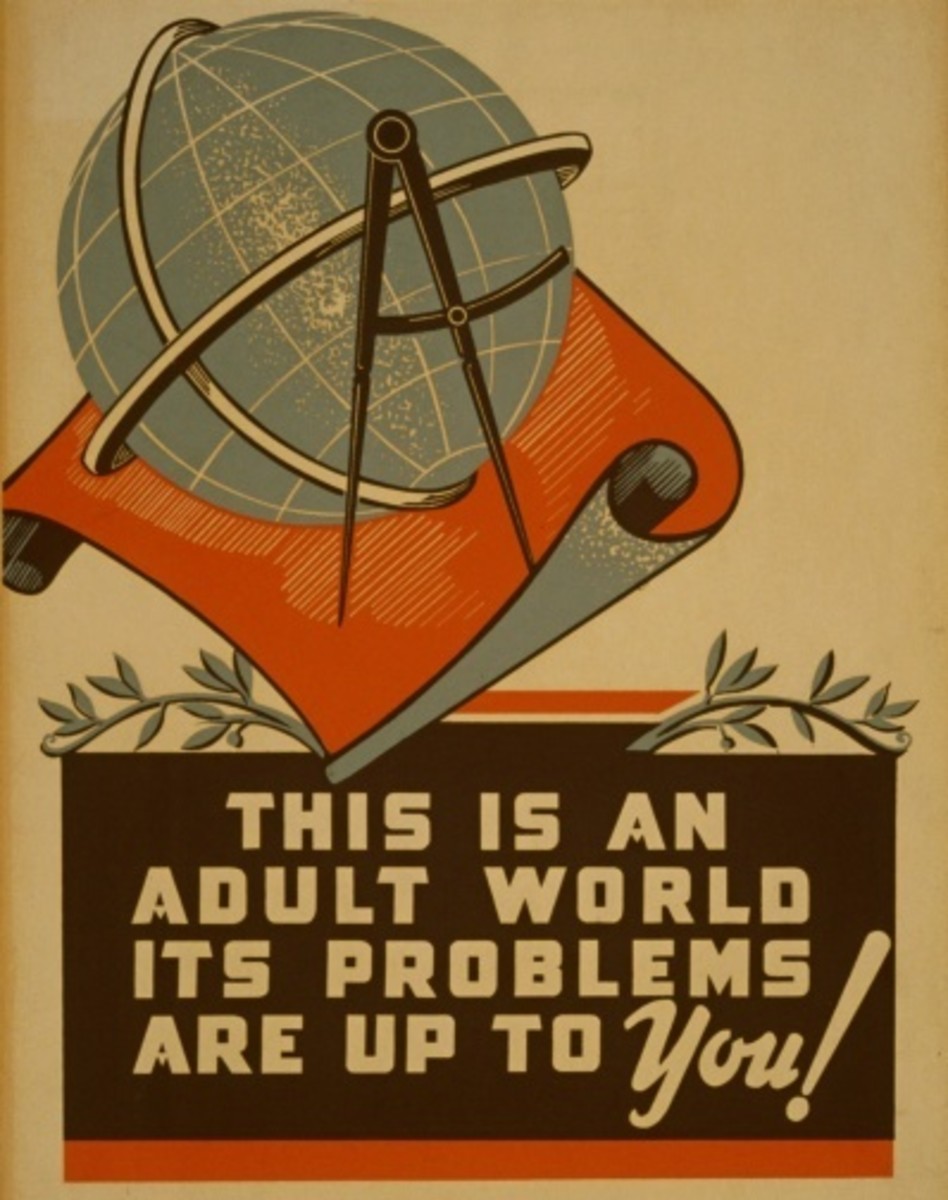The Memoirs of a Disabled Single-Parent
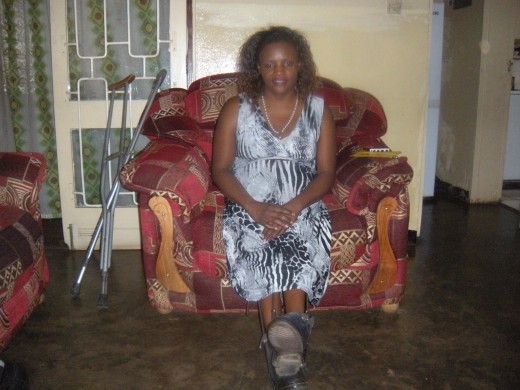
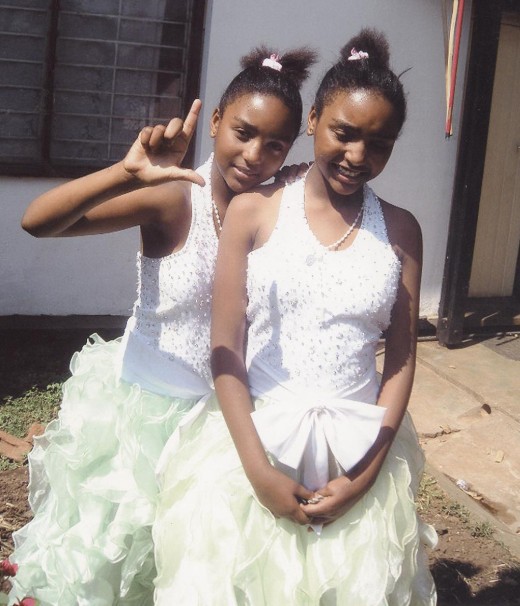
Stella, a proud disabled single-parent of three amazing girls, narrates how she has had to cope with raising them in a Southern African country, Malawi
Stella Nkhonya, 38, hails from the Northern tip of Malawi, an area known as Kaporo situated in Karonga District, where she grew up with her parents throughout her childhood as a distraught disabled child. She however managed to pass her Primary School Leaving Certificate Examinations (PSCLE) and got selected to Marymount Secondary School in Mzuzu. Later, she went to study secretarial studies at the Polytechnic Constituent College of the University of Malawi in Blantyre.
Despite all sorts of stigma that she has gone through since her early years of primary schooling, her father who himself was a teacher, used to instil in her a sense of hope, optimism and a spirit of hard work in school. It is this positive attitude that saw her excel and accomplish big in life.
No wonder, as a graduate of University of Pretoria in South Africa, she now has an enviable job at the Ministry of Lands Housing and Urban Development where she works as Systems Analyst, a somewhat challenging career that not many women in Malawi yearn for, let alone women with disabilities.
But ask Stella today what makes her most proud of all the achievements she has made so far, she will tell you it is neither the fact that she drives a stylish salon car which has been modified specifically for her disability, nor the possession of her own luxurious house in the city.
Rather, as a disabled single-parent, she says it is the extraordinary experience of successfully raising her three pretty girls that matters most in her life, especially when you imagine that two of the girls are actually identical twin sisters.
Her first born, Alice Mpaso, 18, is currently at the Polytechnic College where she is pursuing Bachelor of Mathematical Sciences. Alice’s father died when she was only four. Since then, Stella has raised her single-handedly.
Coping with husband’s death
Stella says while it is not easy for any child to cope with the loss of his or her father, but for Alice, it was more complicated considering that she was even much closer to her dad who used to play most of the motherly roles – rather than just fatherly – that Stella could not have fulfilled anyway.
“At first it was relatively easier to raise her because my husband then helped me a lot. For example, he could strap the child on his back whenever she cried, something i couldn’t do myself with my disability. So when he died four years later, it was really a big blow for both Alice and me,” she recollects.
She says because Alice could easily sense the void left by her father, it was always going to be a tall order for Stella to suddenly feel that vacuum for the simple reason that she had to start performing those errands that her husband used to do when he was alive. It was not surprising therefore to hear the inquisitive lad asking her from time to time when her father would come again. And the reality that her father would never come again is what made life difficult for both Stella and Alice.
“I am now relieved that Alice is a grown up kid enjoying her studies in the university. I thank the Lord Almighty for that,” she says.
Adventure of raising twins
Wait a minute! If Stella thought raising Alice was the most difficult undertaking in the world, it was probably because she was yet to experience yet another adventure. 13 years ago, she was gifted with identical twins, Felista and Francisca, whose father used to live abroad but never stayed together with Stella after their birth.
“Raising twins is always difficult for any woman without disabilities. But i can tell you it is like hell for a woman with disabilities,” she says.
She explains that she cannot count the number of times she had to employ baby-sitters because even the experienced baby-sitters could hardly cope with the ordeal of looking after two children at the same time. So she did not have a choice, she had to employ two baby-sitters, which was quite expensive, if not unaffordable.
“I remember one day when a strange man was passing by my house and saw me with the twins, he stopped and asked me about the whereabouts of the father of the children. When I told him that he wasn’t around, he just screamed: you are an angel!
“He said he too had challenges looking after his own twins, but he just couldn’t begin to imagine how a single parent with disabilities would make it,” she says.
Disability activism
Because of the challenging experiences she has gone through since she was a child, Stella decided to spice up her work in the civil service with disability activism. For the past 12 years or so, she has actively associated herself with the activities of the Federation of Disabilities Organisations in Malawi (FEDOMA).
Through FEDOMA, she voluntarily coordinates the organisation’s activities in Lilongwe and raises awareness about the challenges that persons with disabilities face in Malawi. In addition, she has also volunteered her time coordinating the Human Rights for Women with Disabilities (HRWD), a network that aims to sensitize communities on rights of women and girls.
“I love my current work in Government. But as a mother i need to spare reasonable time with my kids, that’s why i don’t knock off from work beyond six in the evening like other workaholics do. At the same time, i feel duty-bound to give out whatever i can towards doing charity work during my free time. So I divide and manage my time well,” she says.
During the World AIDS Day commemoration in 2010, Stella, through the HRWD, visited Kanyangala Village in Traditional Authority Dzoole in Dowa District, to sensitize communities on the rights of women and girls. During the interactions, the community members narrated a sad but true story of Bridget (not real name), a 22-year old girl whose disability emanated from polio when she was only five years old. One day, a local HIV-positive businessman in the same village, after noting that Bridget was left home alone, raped her.
When the young girl returned from the shop she found Bridget crying. She was asked to call her relatives from the fields. The relatives reported the matter to the chief. However, the chief did not report the matter to the police but the businessman was called for questioning and he explained that he committed the crime as part of a ritual to cleanse himself of the HIV virus, after being advised by a traditional healer to sleep with a woman with disability.
“After interacting with the community, we mediated in the matter. We then used Bridget’s story to sensitize the community on the rights of women and girls with disabilities with a view of demystifying the belief that women with disabilities should be sexually used as charms to purge infected men of HIV and AIDS,” she recollects.
Stella and her HRWD team also sensitized women with disabilities on their sexual rights. At the local level, the team had several sensitization meetings, whereas at the national level they used Bridget’s story as case study on television and radio.
They took the victim for an HIV and AIDS test and she was found positive. Bridget underwent a counselling session. She became part of the civic education team herself.
Role modelling
Stella acknowledges that despite a number of non-governmental organisations (NGOs) and other stakeholders doing some work on the ground to raise awareness about disability issues, the majority of disabled mothers and young girls in the country still remain trapped in abject poverty and can hardly access education, public space, jobs, and other opportunities right from their tender ages.
She says many children with disabilities and their families experience barriers to the enjoyment of their basic human rights and to their inclusion in society and their needs are given low priority. Yet most of the barriers they face are more as a result of the unfriendly environment in which they live than as a result of their impairment.
Stella also argues that many disabled mothers find themselves in the pathetic situation today because they did not have role models when they were young. Due to stigma and negative societal attitudes against people with disabilities, communities believe that there is nothing positive that can come out of them, thereby perpetuating the cycle of poverty among persons with disabilities.
She says unless those who have excelled in life come out in the open and challenge such (mis)perceptions, these attitudes will never change.
“I always want to be a role model to the young girls and boys with disabilities. I want to show to them that with a great deal of hard work and positive mind, it is very possible for a person with disabilities to excel in life. Look, the car i am now driving is the third i have bought,” she boasts.
She says besides working with FEDOMA to conduct career guidance in communities, she has also been collaborating with the Malawi Council for the Handicapped (MACOHA) where she facilitates career talks with girls and boys with disabilities.
Mothers’ day message
As a Christian woman affiliated to the Catholic Church, Stella thanks God for helping her raise her three children. She is grateful for the love her children have always shown her.
“When I am disappointed, my children actually notice that mum is down, and they usually come to lift my spirit. I thank God for this,” she says.
And besides wishing all the mothers in Malawi a Happy Mother’s day, which falls on October 15 in Malawi, she particularly advises all the women in the country and beyond to put God first in whatever they do.
Says Stella: “They should never let their children to feel self-pity. They should just continue to thank God all the time for the wonderful gift He has given them.”
----------------------------------------------------------------
The author is a journalist and a full-time child rights and disability activist, and he is currently employed by the Southern Africa Federation of the Disabled (SAFOD) as Projects Coordinator.



